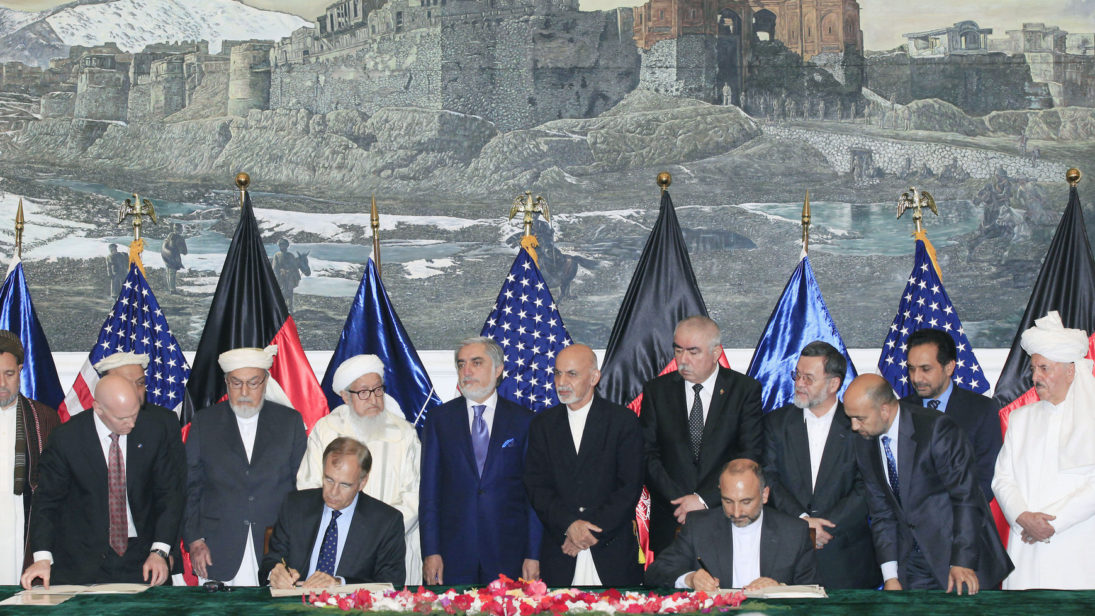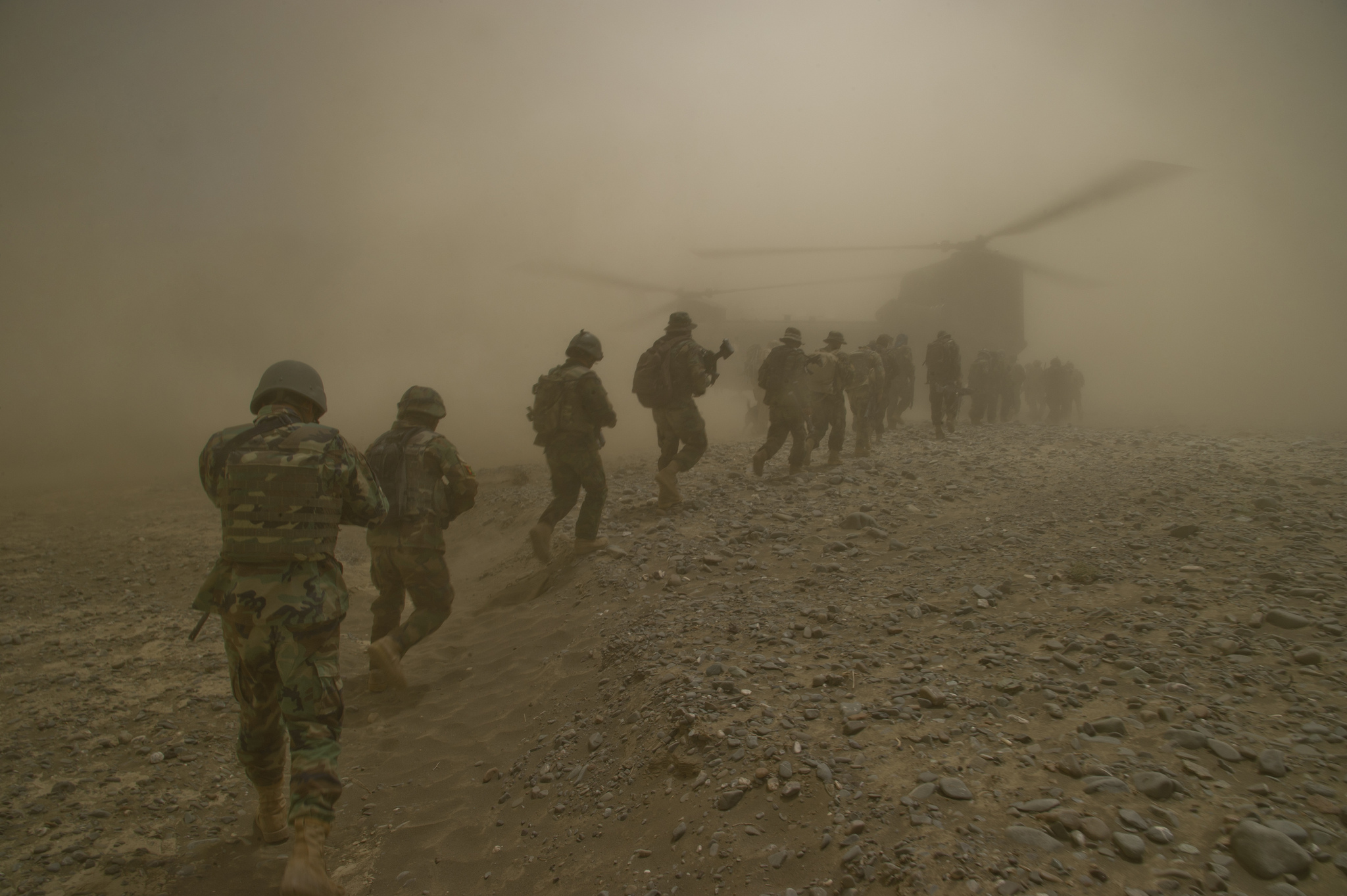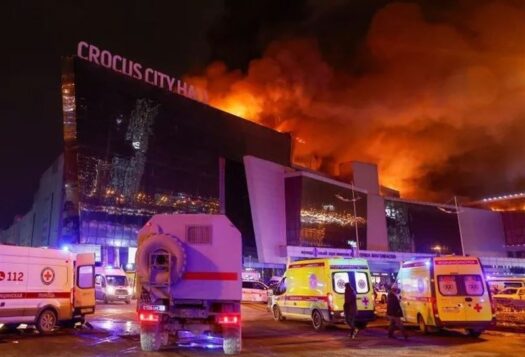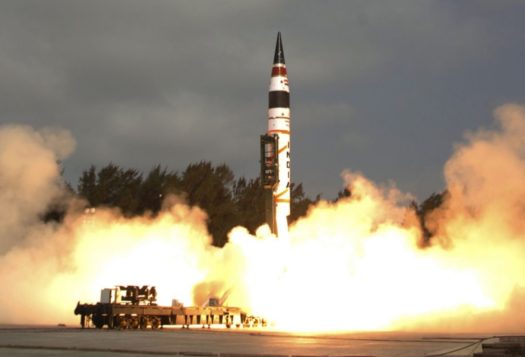
Amidst debates over whether U.S. President Donald Trump’s South Asia Strategy is working, the security situation in Afghanistan has become increasingly volatile. Over 513 Afghan soldiers have been killed in the past month. There has been a surge in civilian casualties from airstrikes conducted by Afghan and U.S.-led forces. Meanwhile, the Taliban has been able to advance its influence not just in terms of territorial control, but also governance. Due to these developments, in September, political leaders of the Afghan Parliament asked for a review of the Bilateral Security Agreement (BSA) between the United States and Afghanistan. The agreement, signed in September 2014 after the National Unity Government (NUG) came to power, reaffirms both countries’ commitment to the war and outlines a set of agreed-upon definitions and obligations regarding the United States’ behavior in Afghanistan. It is essential that the United States addresses their concerns pertaining the BSA to avert potential discordance between the United States and Afghanistan.
Concerns Related to BSA
High casualty rates among Afghan forces and civilians have been a major concern for Afghanistan. Hamayon Hamayon, the first deputy speaker of the lower house of parliament, the Wolesi Jirga, lamented the increase in casualties among civilians and the Afghan security forces. Abdullah Barikzai, a representative of Uruzgan province, said, “Russia, Iran and Pakistan are at the war line with us and obviously assist the opposition groups, which is due to the presence of the United States.” These statement suggest that, in light of increasing casualties among civilians and Afghan forces, anger among Afghan politicians against the United States has heightened.
Casualties of Afghan security forces have increased even though there has been a sharp decline in their numbers. According to Special Inspector General for Afghanistan Reconstruction (SIGAR) head, John Sopko, training and equipping the Afghan National Defense and Security Forces (ANDSF) has been a top priority for the United States and its international allies. The 2017 SIGAR Quarterly report claimed that over 60 percent of the approximately $121 billion in U.S. funding for reconstruction in Afghanistan since 2002 has been invested in building the ANDSF. However, despite these ongoing efforts, an inadequacy in the performance of Afghan security forces has been highlighted as one of the failures of U.S. policy in Afghanistan. It is believed that without the support of U.S. forces the Afghan military is incapable of operating. A SIGAR report this year presented many problems among the ANDSF, including a high rate of attrition, desertion, shifts of personnel between security branches, and failure to reenlist. However, the reasons for the problems remain classified by the U.S. Department of Defense. Thus, poor transparency on both the Afghan and the U.S. government sides, combined with prevailing domestic problems such as corruption, political meddling, nepotism and poor leadership, remains a huge challenge in improving the Afghan forces. Even as the Pentagon talks about adjusting its tactics to bring support to certain areas, unless the problems above are addressed, issues pertaining to the strength of the Afghan forces will persist.
As new terrorist groups such as ISKP struggle to assert their presence, the United States has increased air strikes, while the civilian death toll has risen 39 percent. The deployment of non-guided and less accurate munitions have been responsible for unintended civilian deaths.
Given this, over ten years since the inteqal (the transfer of security responsibility to Afghan leadership, as opposed to NATO or U.S. leadership), Afghan security forces have not been able to demonstrate their effectiveness in protecting citizens and preventing the Taliban from seizing territories. As new terrorist groups such as the Islamic State in Khorasan Province (ISKP) struggle to assert their presence, the United States has increased air strikes, while the civilian death toll has risen 39 percent. The deployment of non-guided and less accurate munitions have been responsible for unintended civilian deaths. Previously, former President Hamid Karzai had refused to sign the agreement on the same grounds. The BSA states that without the consent of the U.S. government, the Afghan government cannot surrender U.S. personnel to the International Criminal Court (ICC). Afghan leaders and organizations have protested this impunity for U.S. personnel responsible for human rights violations and even war crimes. Despite these demands and continuing civilian casualties, the United States has not made any progress in addressing concerns of Afghan families who are desperate for justice. Additionally, in September, the U.S. National Security Advisor John Bolton threatened ICC judges and officials with sanctions if any American serving in Afghanistan is charged with war crimes.

Necessity of the BSA
The demand for a review of the BSA comes at a crucial juncture, especially when the United States has been making various efforts to bring the Taliban to the negotiating table. Even so, the prospect of calling off the BSA would not work in favor of Afghanistan. The growing threat of the ISKP and increasing influence of the Afghan Taliban makes U.S.-led counterterrorism operations permitted by the BSA critical. Additionally, the Afghan government would find it difficult to sustain Afghan forces without assistance from the United States, as the BSA permits the United States to pay the salaries of the ANDSF.
Without the support of Afghans, the United States will find it difficult to succeed in its campaign against the Afghan Taliban. Pursuing a strategy that is aimed at reducing the cost of the war could risk the lives of more civilians, giving birth to more insurgents.
The United States should recognize that the concerns highlighted by the ministers have been raised by Afghans and international organizations for a long time. Thus, as it prepares to enter the seventeenth year of the war in Afghanistan, it needs to review actions that would affect its popularity among the country’s people and its politicians. In particular, this means that the United States, in close cooperation with the Afghan government, should try to overcome the obstacles that are preventing the Afghan forces from becoming an effective force. This means addressing the issue of corruption outright: a September 2017 SIGAR report flagged a number of key findings regarding the United States’ experience developing the ANDSF, including one lesson that “ANDSF monitoring and evaluation tools relied heavily on tangible outputs…This focus masked intangible factors, such as corruption and will to fight, which deeply affected security outcomes.” To combat corruption, American and NATO supporters can encourage low-level and mid-level officers of ANDSF to be transparent about the activities of the most senior officers. Second, there is also a need for the United States to strengthen intelligence collection and coordination inside Afghanistan, particularly within the National Directorate of Security (NDS), since shortfalls in intelligence have made the ANDSF and civilians even more vulnerable to insurgent attacks. Third, addressing the weaknesses of the Afghan security forces requires a systematic overhaul of Afghanistan’s security sector, with state of the art training and modern equipment. Finally, improvements in the working conditions, as well as anti-corruption efforts, would also address some of the causes of attrition, enhance retention, and improve the recruitment situation of the Afghan security forces.
Besides addressing concerns over the usage of U.S.-supplied non-guided bombs that are responsible for civilian deaths, the United States and coalition forces should also provide rehabilitation and compensation to the families of the victims that have been killed by the airstrikes led by the United States. Additionally, it must carry out investigations against the U.S. personnel who are involved in civilian casualties. Further delay in addressing these issues of justice and security will create a vacuum for the Afghan Taliban, which has already established a shadow governance structure in several parts of Afghanistan.
Without the support of Afghans, the United States will find it difficult to succeed in its campaign against the Afghan Taliban. Pursuing a strategy that is aimed at reducing the cost of the war could risk the lives of more civilians, giving birth to more insurgents. In the backdrop of upcoming elections and emerging threats from the Afghan Taliban to disrupt the election process, both the United States and the Afghan government must be careful of any kind of domestic turmoil and political instability. Keeping long term considerations in mind, the U.S. government will have to address the issues raised by the Afghan parliamentarians to avoid any possible divergence between itself and its crucial partner in the seventeen-year war.
***
Image 1: U.S. Embassy Kabul Afghanistan (cropped)
Image 2: DVIDSHUB via Flickr


